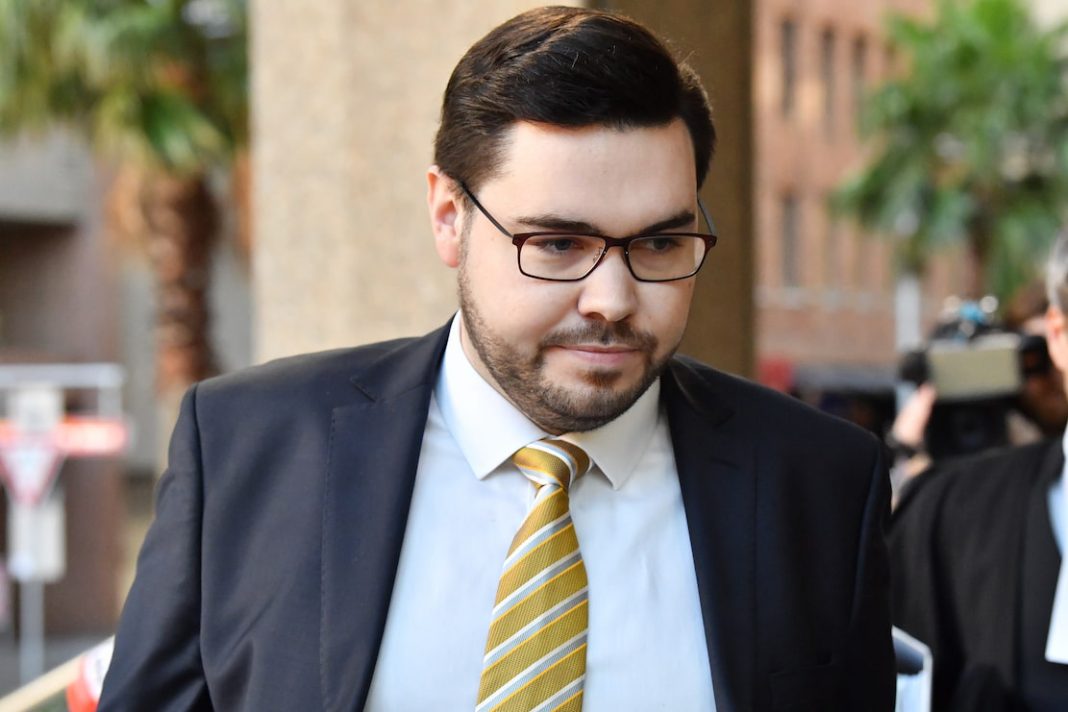Bruce Lehrmann’s defamation lawsuit could end with his reputation destroyed and as little as one cent to compensate, but may have “chilling” broader consequences, experts say.
Federal Court Justice Michael Lee will give judgment on Monday after Lehrmann sued Network Ten and presenter Lisa Wilkinson over a February 2021 report on The Project containing Brittany Higgins’ claim that he raped her at parliament house in 2019.
Lehrmann has always denied the accusation and said the broadcast destroyed his reputation.
A criminal case was abandoned in the ACT Supreme Court due to juror misconduct.
Lehrmann also denies a separate rape allegation before the courts in Queensland, his lawyers have indicated.
The defamation judgment was scheduled earlier in April before sensationally re-opening when Network Ten sought fresh evidence regarding an interview with the Seven Network’s Spotlight program.
The court heard that in addition to paying Lehrmann’s rent for a year and taking him out for fancy dinners, Seven reimbursed him for drugs and sex workers to land the exclusive – claims denied by the broadcaster.
Australian National University law professor Margaret Thornton said she does not envy Justice Lee’s role deciding the unique and unprecedented defamation case.
“Apart from the singularity of the facts in this case, the particular trajectory it has taken is so peculiar,” she told AAP.
“The fact that we have this confluence of unique elements, added together, make it very difficult to think about it in terms of the way precedents in defamation law operate.”
While Ms Higgins’ allegation initially put a spotlight on the parliament house workplace culture, the subsequent legal proceedings have taken on a life of their own.
It could have a “chilling” deterrence on future potential complainants, Prof Thornton said.
“What individual would be prepared to put up with the amount of publicity that’s emanated from this?”
The publicity has been partially fuelled by the proceedings being streamed live on YouTube, although University of Sydney law professor David Rolph explained that was to facilitate the principles of open justice.
“Which is why the public have the right to go to courtrooms to observe court proceedings themselves, but of course, the reality is that most people don’t have the time or the proximity to be able to do that,” Prof Rolph told AAP.
The case has attracted many more viewers than other proceedings streamed by the court.
“There’s something about the coalescence of legal and social and political issues around this case which have obviously drawn immense public attention,” he said.
Despite not being directly named, Lehrmann claims he was identifiable in Ten’s broadcast.
Ten is defending the broadcast as true, and under civil law, has to convince Justice Lee it is more probable than not, Prof Rolph said.
“The more serious the allegation, the more persuaded or satisfied the court will need to be,” he said.
Another defence of qualified privilege turns on the conduct of Ten’s employees and whether they acted reasonably preparing the program.
If it fails, Ten could be ordered to pay damages to Lehrmann, which was in the network’s sights when it sought to re-open the case for fresh evidence in a bid to attack his credit as a witness and his motivation for suing.
“If you’re using defamation proceedings for an ulterior purpose then the court can strike out the proceedings as an abuse of the court’s process,” Prof Rolph said.
The network’s lawyers have argued Lehrmann’s evidence and conduct should only entitle him to “derisory damages”.
“The wonderful phrase Justice Lee has used is ‘the lowest coin in the realm’,” Prof Rolph said.
“At the moment that would be five cents … although I suppose you could transfer someone one cent.”
1800 RESPECT (1800 737 732)
National Sexual Abuse and Redress Support Service 1800 211 028



